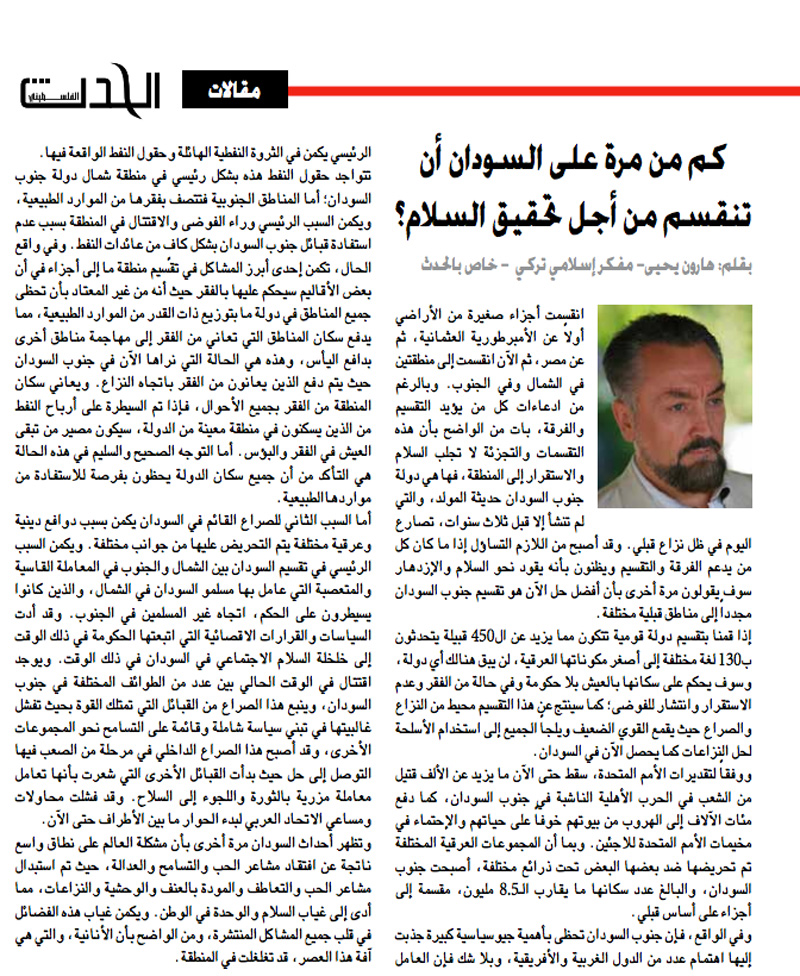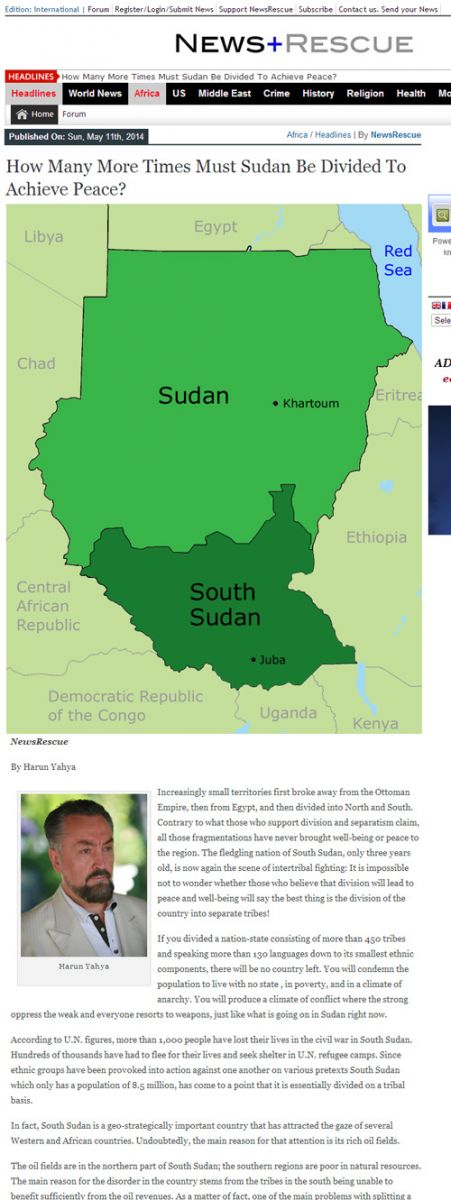
 Increasingly small territories first broke away from the Ottoman Empire, then from Egypt, and then divided into North and South. Contrary to what those who support division and separatism claim, all those fragmentations have never brought well-being or peace to the region. The fledgling nation of South Sudan, only three years old, is now again the scene of intertribal fighting: It is impossible not to wonder whether those who believe that division will lead to peace and well-being will say the best thing is the division of the country into separate tribes!
Increasingly small territories first broke away from the Ottoman Empire, then from Egypt, and then divided into North and South. Contrary to what those who support division and separatism claim, all those fragmentations have never brought well-being or peace to the region. The fledgling nation of South Sudan, only three years old, is now again the scene of intertribal fighting: It is impossible not to wonder whether those who believe that division will lead to peace and well-being will say the best thing is the division of the country into separate tribes!If you divided a nation-state consisting of more than 450 tribes and speaking more than 130 languages down to its smallest ethnic components, there will be no country left. You will condemn the population to live with no state , in poverty, and in a climate of anarchy. You will produce a climate of conflict where the strong oppress the weak and everyone resorts to weapons, just like what is going on in Sudan right now.
According to U.N. figures, more than 1,000 people have lost their lives in the civil war in South Sudan. Hundreds of thousands have had to flee for their lives and seek shelter in U.N. refugee camps. Since ethnic groups have been provoked into action against one another on various pretexts South Sudan which only has a population of 8.5 million, has come to a point that it is essentially divided on a tribal basis.
In fact, South Sudan is a geo-strategically important country that has attracted the gaze of several Western and African countries. Undoubtedly, the main reason for that attention is its rich oil fields.
The oil fields are in the northern part of South Sudan; the southern regions are poor in natural resources. The main reason for the disorder in the country stems from the tribes in the south being unable to benefit sufficiently from the oil revenues. As a matter of fact, one of the main problems with splitting a region up into smaller parts is that some regions will be condemned to poverty because it is generally quite unusual that all of a country’s territory will possess the same degree of rich natural resources. Those who are abandoned to poverty then start attacking other regions in desperation. That is the situation we now see in South Sudan; those who feel economically insecure are being forced into such a conflict. People living in the region are in any case very poor. If oil revenues are taken only by those living in a specific area, the others will clearly be condemned to poverty and misery. The right and just course of action is to ensure that everyone in the country can benefit from its natural resources.
Another important cause of conflict in Sudan is the religious and ethnic differences being incited by certain parties. The reason why Sudan was divided into North and South was the harsh and intolerant attitude of the Muslim population in the north, which was in charge of the government, toward non-Muslims in the south. The administration’s exclusionary decisions and actions damage the social peace in the country. There is now fighting between different ethnic groups in South Sudan, and that fighting stems from the tribes in power and in the majority failing to adopt a tolerant and inclusive policy toward other groups and that internal conflict has become quite insoluble as other tribes that feel they have been treated shabbily have rebelled and resorted to weapons. The efforts of the Arab Union to establish dialogue between the sides have so proved to be in vain.
Events in Sudan once again show that the problems in the world as a whole stem from a lack of love, tolerance and justice. Human feelings such as love, compassion and affection have been replaced by aggression, savagery and conflict and as a result, there is no more peace, soundness or union in the country. At the root of all problems lies the fact that these virtues are no longer prioritized by people. It is abundantly clear that “selfishness,” the sickness of our age, has deeply affected the region.
Adnan Oktar's piece on Al-Hadath & News + Rescue:


